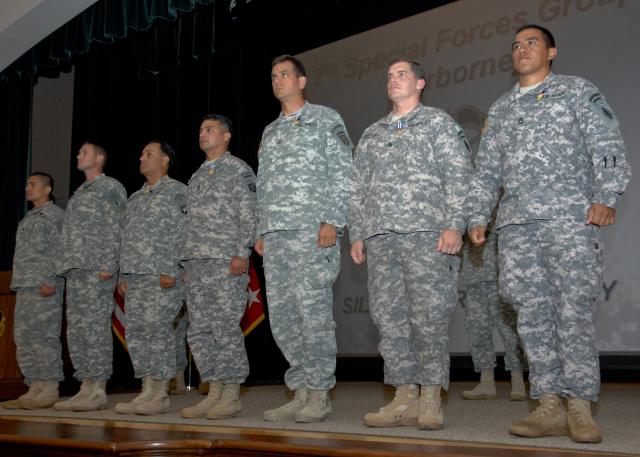WASHINGTON — With Veterans Day around the corner, Joint Chiefs of Staff Chairman Navy Adm. Mike Mullen and his wife, Deborah, sat down with reporters this week to raise visibility on issues important to military families and veterans.
The Mullens’ interviews yesterday with the Pentagon Channel and other news broadcasters were the latest in the couple’s frequent discussions about how to prevent or fix some of the most challenging problems of servicemembers, veterans and their families: mental health issues, reintegration into civilian life, unemployment and homelessness.
“This is an extraordinary group of young people fighting these wars,” the chairman said. “Their lives, by and large, have changed forever. They look forward to closing this chapter of their lives and moving forward.”
Today’s young veterans “have enormous potential,” he said, adding that they want to go to college, get jobs and raise families.
Mullen has made the post-military life of Iraq and Afghanistan war veterans a focus of his tenure as chairman, conducting a “Conversations With the Country” tour to speak to government and business leaders in civilian communities about helping young veterans reintegrate to civilian life. He added that he recently set up a team at the Pentagon to also help with the civilian reintegration effort.
“There’s a sea of goodwill out there from people willing to help,” Mullen said. “The challenge is in coordinating between them and us.”
The chairman also encouraged new and longstanding veterans to network for better reintegration, saying there is “an instant understanding” among veterans of all wars of each others’ issues. “Everybody who has served is very proud of their service, no matter when they served,” said Mullen, a Vietnam War veteran.
Mrs. Mullen, who frequently travels to speak with her husband and to servicemembers and their families, said issues such as unemployment are important to military spouses, too.
About three-fourths of military spouses either are working or seeking employment, she said, adding that they have excellent work characteristics.
“They’re enormously flexible, they have great strength, and they’re used to change,” she said. “They have extraordinary characteristics that are useful to almost any company.”
The Mullens also spoke about mental health problems, suicides and homelessness among military families and veterans.
The admiral noted that the biggest change in treatment has been the increasing willingness of servicemembers to seek help. Outreach efforts by leaders have made headway against the stigma attached to seeking mental health care in the military culture, he said, but “we’re not there yet” in making the perceived stigma a thing of the past.
The military now deploys mental health professionals to the war theaters, mandates “time outs” for servicemembers who have been near explosions, and keeps adding mental health workers as they become available, Mullen said, adding that more still needs to be done.
“Often, the symptoms, if you don’t do anything about them, won’t manifest for several years, then they are harder to treat,” Mullen said. “I urge people to lead well in this area.” Meanwhile, suicides have become “almost epidemic,” the chairman said, adding that the problem isn’t well addressed across the nation at large.
“I worry that we are at the tip of the iceberg here” with servicemember suicides, he said, noting that because many suicides are not tied to combat deployments, the causes are difficult to discern.
The Mullens urged people to intervene if they think someone they know may be suicidal. A change in behavior, risky behavior, drug and alcohol abuse and suicides among loved ones all are risk indicators, Mrs. Mullen said. Through publicity about suicides, she said, family members are beginning to understand “that they don’t have to guess about whether someone might be suicidal.” She urged people to call 1–800-273-TALK (8255) if they need help.
Regarding homelessness, a growing problem particularly for young female veterans, Mrs. Mullen said the issue begins in the military. A significant number of homeless female veterans experienced sexual trauma in the military, she explained, which can lead to post-traumatic stress.
Also, Mrs. Mullen said, many women don’t even think of themselves as veterans after they leave the military, and communities often don’t look at them that way, making them less likely to use veterans benefits to seek the help they need.
Female veterans have a higher divorce rate and lower civilian pay rate than their male counterparts, and one-fourth of female homeless veterans have children in their custody, Mrs. Mullen said. The trajectory of such women after leaving service too often is “couch surfing, or sleeping in their cars,” then into homeless shelters, she said.
“We need to be focused on this in the military,” she said.
Source:
U.S. Department of Defense
Office of the Assistant Secretary of Defense (Public Affairs)

 von
von 